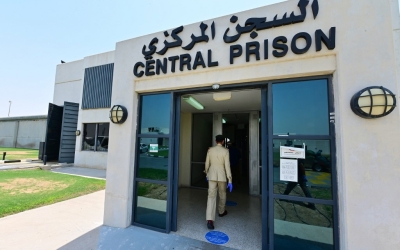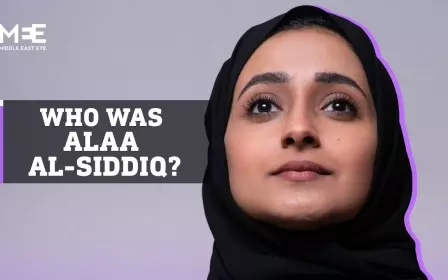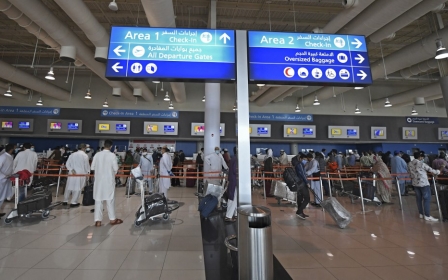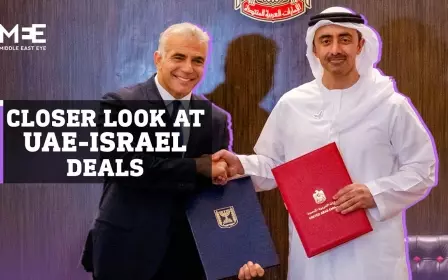Rights groups demand release of 'UAE 94' prisoners on anniversary of infamous trial
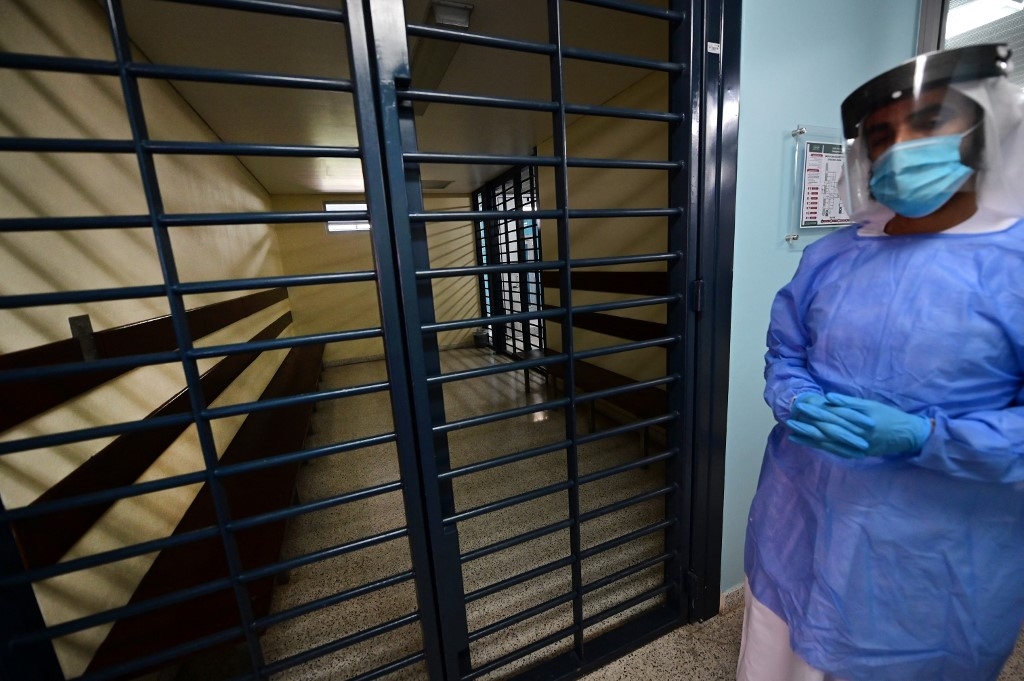
The United Arab Emirates' ambassador to the UK has been urged to press for the release of a number of political prisoners who were jailed during the country's infamous "UAE 94" trial.
In a letter addressed to Mansoor Abulhoul, UAE ambassador to the UK, on Friday - the eighth anniversary of the trial - the International Campaign for Freedom in the UAE (ICFUAE) said it was concerned over the UAE's "persecution of human rights activists and their subsequent treatment in prison".
The "UAE 94" case was a mass trial in 2013 involving 94 people who were accused of trying to overthrow the Emirati government, a charge the defendants vehemently denied.
It resulted in the conviction of 69 people - eight in absentia - who received sentences as long as 15 years.
Two years earlier, the 94 individuals had reportedly signed a petition calling on the Emirati government to institute a set of democratic reforms.
New MEE newsletter: Jerusalem Dispatch
Sign up to get the latest insights and analysis on Israel-Palestine, alongside Turkey Unpacked and other MEE newsletters
The signatories were said to have called for an elected Federal National Council with full regulatory powers and universal suffrage, a retreat of the security state and basic human rights within the existing framework of a constitutional monarchy.
Friday's letter said that several of the prisoners showed visible signs of torture prior to the trial, which went uninvestigated by UAE authorities.
It added that four prisoners currently remain in indefinite detention despite having completed their seven-year sentences, with Emirati authorities using travel bans to target the prisoners as well as their family members.
"In relation to indefinite detention and imprisonment conditions, we ask that the UAE allows international monitoring of prisons by inviting independent and impartial bodies to inspect and evaluate detention conditions on the ground," the letter read.
The letter follows a call from Mary Lawlor, the United Nations special rapporteur for the situation of human rights defenders, who urged the country last month to release five of the prisoners, citing they were being placed in solitary confinement in temperatures above 40C, which "could well amount to torture".
Last year, US Congressman Jim McGovern, co-chair of the Tom Lantos Human Rights Commission, called on the UAE to release Abdulsalam Mohamed Darwish al-Marzooqi, one of the prisoners.
"Mr al-Marzooqi's case seems to be an example of the UAE's mistreatment of individuals who oppose the government, feeding doubts about the country's commitment to the rule of law," McGovern said in an emailed statement to MEE.
Other rights groups, including Amnesty International, have also called on the UAE to end the "unjust imprisonment of dissidents".
"The 'UAE-94' prisoners have unjustly languished behind bars for over nine years now, with some not allowed to see or speak to their families for years on end," Lynn Maalouf, deputy director for the Middle East and North Africa at Amnesty International, said on Friday.
"The devastating effects of this cruel policy have become all the more clear with the death of Alaa al-Siddiq, the daughter of 'UAE-94' prisoner Mohamed al-Siddiq - who died without having spoken to her father in three years because authorities cut off contact."
Middle East Eye delivers independent and unrivalled coverage and analysis of the Middle East, North Africa and beyond. To learn more about republishing this content and the associated fees, please fill out this form. More about MEE can be found here.


